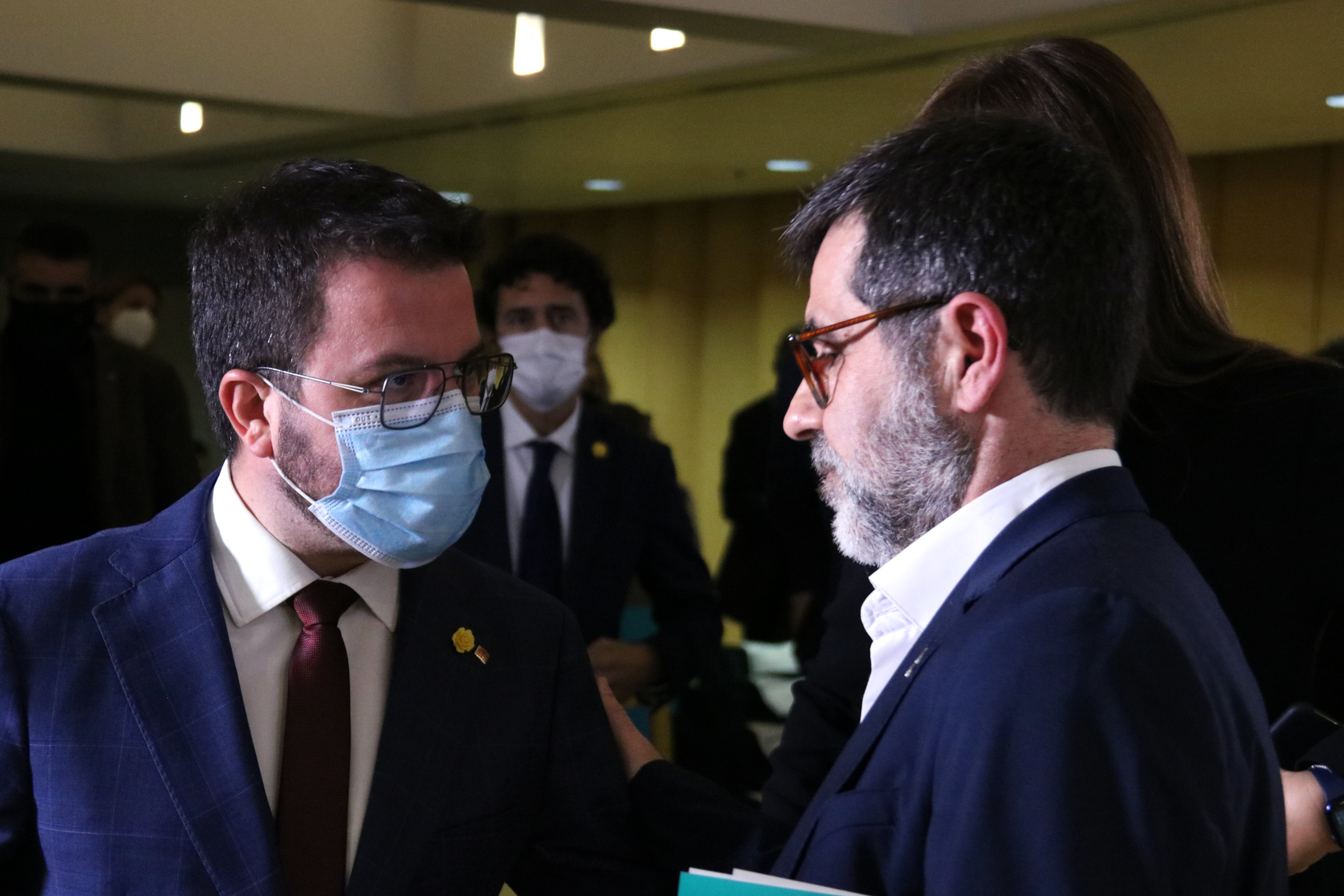This coming Saturday is the deadline that the Catalan Republican Left (ERC) has set for reaching a deal with Together for Catalonia (Junts) on forming a new Catalan government based on the same coalition as the last legislature. To unblock the negotiation, the candidate for the presidency, ERC's Pere Aragonès is to travel this Tuesday to Lledoners prison to meet with the jailed Junts general secretary, Jordi Sànchez. According to ERC sources, also present will be Oriol Junqueras, leader of the Republicans and, like Sànchez, serving a sentence for sedition for the 2017 independence referendum.
The significance of the meeting is clear, although in Aragonès's circles, the visit is placed in the context of the rounds of contacts with different political players that have been going on for weeks, and have also included, for example, an encounter between Aragonès and exiled Junts party president Carles Puigdemont. In Junts, which has pushed for Aragonès to be directly involved in the negotiations, they maintain that the talks have not yet reached a point of solidity at which an agreement can be made without it being vulnerable to premature damage. On the other hand, ERC considers that there is no justification for delaying the investiture of a new government any longer and that if this is happening it is due to the partisan excuses of Junts. ERC has not yet specified what will happen if the blockade continues on May 1st, but Aragonès has given some clues, opening the door to a minority government, without Junts seated at the cabinet.
Distribution of portfolios
On the table at the Lledoners conclave will be the design of the future government that Aragonès has in mind, which will include a profound restructuring of the current executive. The idea is not to make the Catalan cabinet any bigger than its current thirteen ministries, but to reformulate the distribution, creating three new ones and diluting others.
The starting point is the proposal for a government with complete parity between men and women, including in the high-ranking posts. This premise will end up determining which names will hold each portfolio, and they will previously have to be distributed between ERC and Junts. This will be one of the key points of the Lledoners encounter.
Junts aspires to an exchange of portfolios: with those currently held by ERC being traded to them, and vice versa. Aragonès, however, wants to introduce an element of cohesion so that, for each ministry given to a member of one party, there is also an associated position from the other party. In any case, the essence of the new government will be for ERC to hold the presidency, the hot potato of interior and probably the three new ministries: equality and feminisms; climate action; and universities and knowledge, although some of these could end up in the hands of an independent. Junts would hold the key departments of the vice-presidency and the economy ministry, to be headed by Elsa Artadi; foreign affairs; and also health, which would go to current public health secretary Dr Josep Maria Argimon.
The battle for European funds
One of the obstacles will be the struggle for the management of the EU's massive post-Covid crisis funding. Aragonès aspires to create a specific commissioner who will depend on the presidency, while Junts has already made it clear its belief that the European funds should be administered by the economy ministry.
The question of sharing out portfolios is usually the last step before closing a government deal. This time, however, it has been decided to leave until the end the thorniest aspects, which relate to the shared strategy towards independence and the function of the exile body the Council for the Republic.
In the main image, Aragonés and Sànchez in conversation. / ACN

